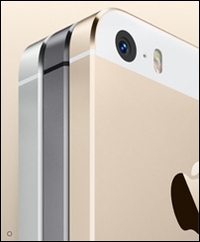Commentary
Apple Bounces: Owns 42% Of U.S. Smartphone Market
- by Steve Smith , Staff Writer @popeyesm, January 17, 2014
 Predicting the
imminent collapse of Apple has become a tedious trope among the tech and financial press. The VC and financial community especially -- fueled by testosterone, adolescent sensibilities, and
sports-style analytics -- doesn't seem to be able to relate to a world without clear laudable winners and risible, pathetic losers. It is infectious. I myself am trying to wean my prose from the
future use of the term “mojo.”
Predicting the
imminent collapse of Apple has become a tedious trope among the tech and financial press. The VC and financial community especially -- fueled by testosterone, adolescent sensibilities, and
sports-style analytics -- doesn't seem to be able to relate to a world without clear laudable winners and risible, pathetic losers. It is infectious. I myself am trying to wean my prose from the
future use of the term “mojo.”
For all of the hand-wringing about Apple losing smartphone momentum to Samsung, operating system share to Android, and brand luster to, well, just about everyone, it remains clear that they are the defining device platform for developers and the place where the most and the most lucrative smartphone activity occurs.
NPD reports this week that the company had a very good holiday season, spiking its share of the smartphone market in the U.S. from a 35% share in Q4 2012 to 42% in Q4 2013. That is a lot of iPhones. For supporting evidence of iOS dominance in the U.S., Canaccord Genuity analyst T. Michael Walkley projected yesterday that Apple broke quarterly records to sell over 54 million iPhones and nearly 25 million iPads. All in, Apple sold about 80 million devices worldwide running iOS in a single quarter.
Back to NPD, Apple is not alone in aggregating market share. Samsung also increased its piece of the smartphone universe in the U.S. to 26%, up from 22%. Motorola, HTC and BlackBerry all lost share to the two clearly dominant forces in the U.S. smartphone market. Between them, Apple and Samsung now control 68% of smartphones here.
That figure starts to take on greater significance as we watch the devices interact with others. I have written a few times in the past how effectively Samsung is building a multi-screen ecosystem that is formidable. It has a leading position in connected TVs, which is going to be critical in the next battleground for operating systems in the living room. Device-to-TV connections will become complicated in coming years. As more TVs absorb the streaming capabilities now provided by set-top boxes like game consoles, Roku and Apple TV, there will be a mad scramble to get embedded onto the TV app space. Google, via Android and Chromecast, Samsung and Apple will be contending for the most seamless and ubiquitous cross-device functionality.
Out of the home, it is the interactivity of devices with the larger world of things that will be contested ground. Here I suspect Apple will have an advantage. The iBeacon is going to have a very good year. While retail is the starting point, I am looking forward to wider and more creative application of proximity wireless interactions.
The best sign for consumers may be that both Google and Apple are being less proprietary about their extensions into new device interactions. Chromecast capabilities, for instance, can be found on both Android and iOS apps, although the Chrome browser gives the user greater flexibility in the content that can be thrown to the TV screen. Apple iBeacons can work across iOS and Android devices. I hope we are getting beyond the days when hardware manufacturers like Apple, Sony and Samsung made their devices essentially invisible to one another in the hopes of forcing consumers into phony brand loyalty across hardware choices. Each of these manufacturers should be happy to capture that consumer at whatever level they already have them and then give the owner free reign to interact easily with other devices.




"I hope we are getting beyond the days when hardware manufacturers... made their devices essentially invisible to one another in the hopes of forcing consumers into phony brand loyalty across hardware choices."
Amen to that!